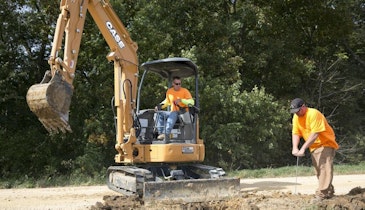Interested in Business?
Get Business articles, news and videos right in your inbox! Sign up now.
Business + Get AlertsIt’s hardly news that many in the pumping business look at the expense side of the ledger every month with an eye toward trimming expenses wherever possible. One item that may catch their eye is that of workers’ compensation insurance. Particularly for smaller businesses, you might ask if it’s necessary.
One simple answer is that it may be required in your state, even for businesses with a single employee. But whether coverage is mandated by law or not, the more important answer is that workers’ comp insurance is the sole remedy for risks associated with injuries or incidents that occur in the workplace. Even if your business is small, it can still be liable for medical bills and lost wages if one of your employees is injured while working. Without the safety net provided by workers’ comp insurance, the cost of paying for an employee’s workplace injury can be devastating to your business.
What often gets lost in discussions of workers’ comp is that it is insurance against lawsuits as well as unforeseen expenses. Business owners wouldn’t dream of “going bare” without vehicle or personal property insurance, but may not realize that workers’ comp is another form of insurance that allows them to function even in the face of major injury and potential liability costs. And with that in mind, let’s take a look at some questions and misconceptions you may have about their coverage.
Q: Is workers’ comp insurance required in the state(s) in which you operate?
A: Although most states require coverage, in other states it may be up to the employer to elect to have it. However, even when employers choose to purchase private insurance instead of workers’ compensation insurance, that does not eliminate the possibility of an employee suing the employer — a situation that does not exist when coverage is provided through workers’ compensation insurance.
Q: Who should be covered?
A: Again, there’s a simple answer, which is “everyone,” including the owner. Consider how (or whether) the business would run after you were injured, and the substantial losses it might incur. Although business owners may file for a workers’ comp exemption to avoid paying a premium on themselves, they won’t receive the medical and indemnity benefits the policy provides if an accident were to occur.
Q: What sort of coverage is necessary for employees who have multiple roles?
A: Yours may well be a business in which your workers wear a number of hats. In that case, coverage should be specified for each of the applicable class codes, along with the percentage of time employees typically spend in each role. Work with your insurance agent to be sure the insurance carrier has the correct classifications on the policy; a misclassification may result in an unexpected audit bill at the end of your policy term.
Q: How are your rates determined?
A: Workers’ compensation insurance rates are based on several factors, including the size of the company and eligibility for discounts if you have a documented safety program or drug-free workplace. However, the most important factor is your company’s loss history and if you qualify for an experience modifier.
Q: How can you save money on your premiums?
A: Many business owners don’t think to shop for the best premium costs. A combination of safety programs and wise selection of carriers can make a big difference in premium costs. Safety audits, regular safety training, creation of a safe work environment and enforcement of safety rules can reduce the cost of your premiums, particularly if you shop wisely for the best coverage and cost. That may also mean looking at organizations such as professional employer organizations (PEOs) offering group rates, even for very small businesses, due in part to the PEOs offering risk management and safety resources for businesses that are too small or otherwise unequipped to implement a strong risk management program. In some cases, PEOs are willing to offer discounts to startup businesses, even though they have no loss history.
Ultimately, workers’ compensation insurance is an investment in the future stability of your business, as well as a way to ensure that your employees will receive the medical care and indemnity benefits they need to get back on their feet and back to work. And, by offering a safe and compliant workplace, you can recruit and retain the best employees, keep them productive and, ultimately, help grow your business.
About the author: Matt Crum is president of Frank Winston Crum Insurance Co. Founder of the FrankCrum Insurance Agency, he also is a member of the Leadership Council of the FrankCrum professional employer organization. He can be reached at mattc@fwcruminsurance.com.






